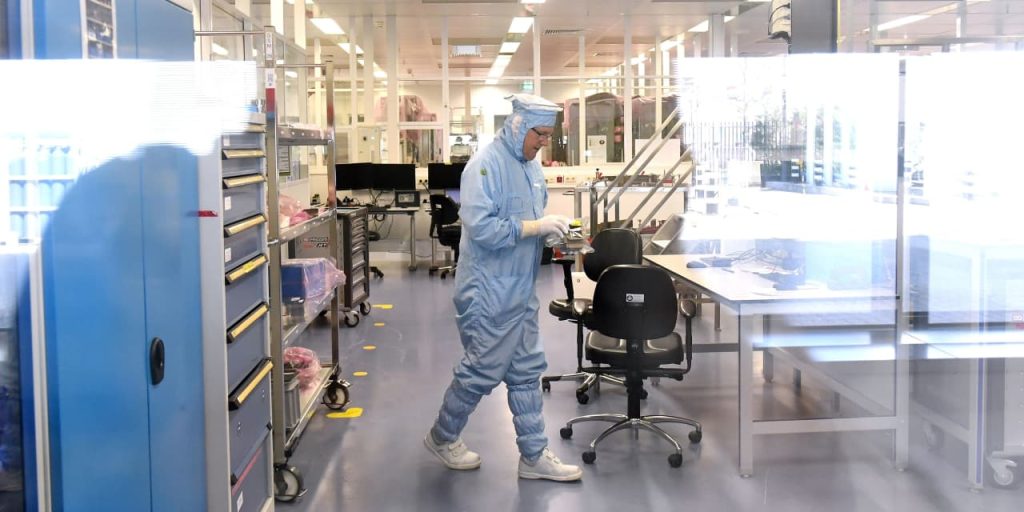ASML Holding, a key chip-equipment manufacturer, is facing more restrictions on exports to China. That is a sign that U.S.-led efforts to freeze China out of global chip-supply chains are working, but it could raise fears that Beijing will retaliate.
Netherlands-based
ASML
has a dominant position in making the lithography machines that are vital for producing semiconductors. The company said Monday that the Dutch government recently partially revoked an export license for shipping NXT:2050i and NXT:2100i lithography systems to China, a move that affects a small number of customers.
The Dutch government requires permission for exports of some types of chip-making equipment. The controls were introduced after the Netherlands, Japan, and the U.S. reached an agreement to start restricting exports of chip-making equipment in an effort to limit China’s access to advanced semiconductor technologies.
“We do not expect the current revocation of our export license or the latest U.S. export control restrictions to have a material impact on our financial outlook for 2023,” ASML said in a statement.
ASML has previously said that curbs on exports to China wouldn’t affect its overall targets for 2025 and 2030, but would alter the regional balance of its sales. The company made 46% of its sales to China in the third quarter of 2023, well above the previous quarter’s 24%, as Chinese companies rushed to order lithography machines ahead of the introduction of stricter controls.
American depositary receipts of ASML were down 4.1% in early trading on Tuesday, having risen 39% over the preceding 12 months. Its shares fell 2.2% in Amsterdam.
ASML has been banned from exporting its most advanced technology, known as extreme ultraviolet, or EUV, lithography to China since 2019. However, attention has recently focused on its sales of older deep ultraviolet, or DUV, machines after analysts suggested China’s Semiconductor Manufacturing International Corp. used that technology to produce an advanced chip for Huawei’s most recent smartphones. The systems affected by the latest Dutch controls are DUV machines.
The restrictions suggest U.S. allies are responding to the Biden administration’s efforts to limit China’s ability to upgrade its own chip-making industry, even via the use of older technology.
The question now is whether China will retaliate. Previous Chinese actions, such as restricting exports of metals that are critical to semiconductor manufacturing, don’t appear to have substantially affected U.S.-listed chip stocks so far. The
PHLX Semiconductor Index
has risen 61% over the past 12 months, compared with about 24% for the
S&P 500.
“China has always opposed the United States’ generalization of the concept of national security and its use of various excuses to coerce other countries into imposing a technological blockade against China,” Ministry of Foreign Affairs spokesperson Wang Wenbin said at a daily press briefing on Tuesday.
“China will closely follow relevant developments and resolutely safeguard its legitimate rights and interests,” he said.
ASML’s ADRs were among the worst-performing components of the PHLX Semiconductor Index on Tuesday but other chip stocks were also down as rising bond yields hit the technology sector.
Nvidia
was down 3.4% and
Advanced Micro Devices
fell 4.3%.
Write to Adam Clark at [email protected]
Read the full article here















